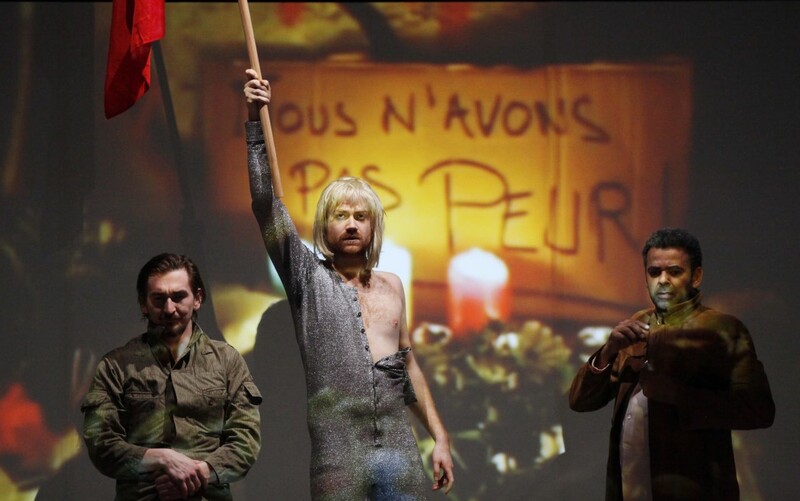Mikaël Serre
Works

Theatre play, 2015
In 1431 the nineteen-year-old Joan of Arc was burnt alive at the stake. In just two years a farmer's daughter from the countryside had become an icon and role model, and in the end would fall victim to political power struggles.
Guided by religious visions, Joan of Arc meddled in the endless war between France, Burgundy and England. Her sense of mission and subsequent victories for France seemed to confirm that she was right. She was merciless in her divine campaign. But with her defeats also came her fall: she had become a symbol that had to be destroyed. The same church that extinguished her life would later proclaim her to be a martyr and saint. When Friedrich Schiller wrote The Maid of Orleans in 1800, he constructed Joan as a pure character in the conflict between emotions and ideology of truth and plaything for male political intrigue. Up to the present day, contemporary conflicts have been reflected more in the story of the young woman from Lorraine than in virtually any other material. While Marine Le Pen positions herself as a modern Joan of Arc, young Islamist warriors follow divine promptings and by attacking the editors of Charlie Hebdo, strike the heart of the Western concept of freedom.
The Paris-based director Mikaël Serre uses Schiller's tragedy as a starting point for a project on the idea of nations, religious fanaticism, radical forms of empowerment and those ideological gaps which reactionists and nationalists fill by invoking the holy warrior Joan of Arc.
A Maxim Gorki Theater production. With friendly support by the Institut français and the French Ministry for Culture and Communications / DGCA
Mikaël Serre was born in 1973 in Nîmes. In addition to his work as a director, for which he has been invited to numerous festivals, including the Fest mit Pina dance theatre festival and F.I.N.D. at Berlin’s Schaubühne, he also works as a translator. At the Gorki, he directed Je suis Jeanne d'Arc and 2014’s The Rise of Glory.